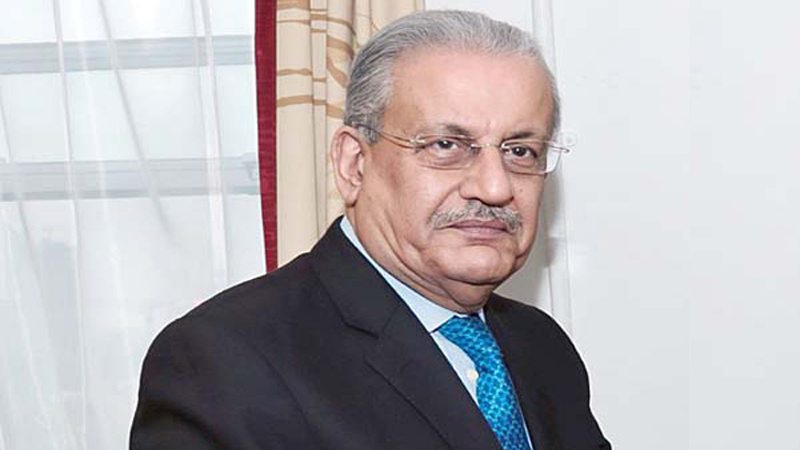State failure creates vacuum, detrimental to democracy: Raza Rabbani


In his keynote address, Rabbani said: there has been no collaboration, between the ruling elite and the common masses, which resulted into huge sit-ins and political crisis. The state has to change its attitude while keeping in view the growing scenario. He maintained that reconciliation among the state, parliament and society was mandatory for strong and promising democracy. Senator Rabbani commended the work of Dr Qaiser saying that he aptly narrated the historical perspective of democratic change with thematics from contemporary period. “When the state fails to deliver on the weak and marginalized faction, vacuum and deprivation sneak in the system, which was detrimental to democracy”, he reiterated.
There has been no collaboration between the ruling elite and the common masses’: former Chairman Senate
He went on to suggest that ‘Truth and Reconciliation Commission’ should be formed to redress the grievances and do justice with the most persecuted, tyrannized and oppressed groups of the society.
In his address, Dr Raja Qaiser said: the book had focused on the core issues being encountered in the democratic process, which also engulfed the trends and propensities, shaping different modes and tenures of the political process. “Pakistani society is disintegrated at the moment. Meanwhile, the Panama leaks incident- which has totally changed the political trajectory of the country- was also the subject matter of the book. There is a need to end the void between the state and the society,” he said.
According to the author, the fragile democratic structure hallmarks the polity of Pakistan. The decade 2008-2018 witnessed tremendous change and confronted great challenges in the democratic history of Pakistan. This is a three-pronged study of the democratic landscape of Pakistan providing a holistic picture of the democratic history. It also underscores the brief history of civilian and military rules.
There is a need to end the void between the state and the society’: Dr Raja Qaiser, author of “Democratic Transition and Political Change in Pakistan
Dr Raja Qaiser, in the book, linked the domestic political structure of Pakistan with the current wave of democracy. This wave swept through the entire world after the end of the Cold War when democracy emerged as a substantive discourse. This section also exhaustively discusses the response of Pakistani polity towards this neoliberal, democratic order. He also highlighted the challenges and presents the way forward for the daunting challenges of democracy and governance in the country.
Leave a Comment